Octorara High School students spent three days last fall experiencing and learning about their local parts of the Chesapeake Bay Watershed. They also discovered the impacts their choices make to promote its health and integrity. The group of 13 students, and their teacher of animal and plant science Helena Martin, participated in a free program led by Stroud Water Research Center, which provides education programs and professional development for schools and teachers in the Susquehanna River Watershed and across the country, and Sultana Education Foundation (SEF), which inspires people in the Chesapeake Bay Watershed to preserve and restore America’s largest estuary. Octorara High School specializes in providing students with career and technical education.
Three Days of Discovery
On the first day, Chris Cerino, vice president of SEF, introduced the students to the rich history of the Captain John Smith Chesapeake National Historic Trail, and Tara Muenz, Stroud Water Research Center’s assistant director of education, prepared them for the following two days of outdoor educational adventures to engage them in the watershed.
On day two, the students headed to the Stroud Center to learn about water quality and how to perform surveys and assessments to better understand the health of a local waterway. Recent rain had made White Clay Creek too deep for the students to collect macroinvertebrates, but they still experienced a tour of the laboratories learning about careers in science and topics in freshwater ecology, including watersheds, stream orders, chemistries, and how to enter their data into the Water Quality App™.
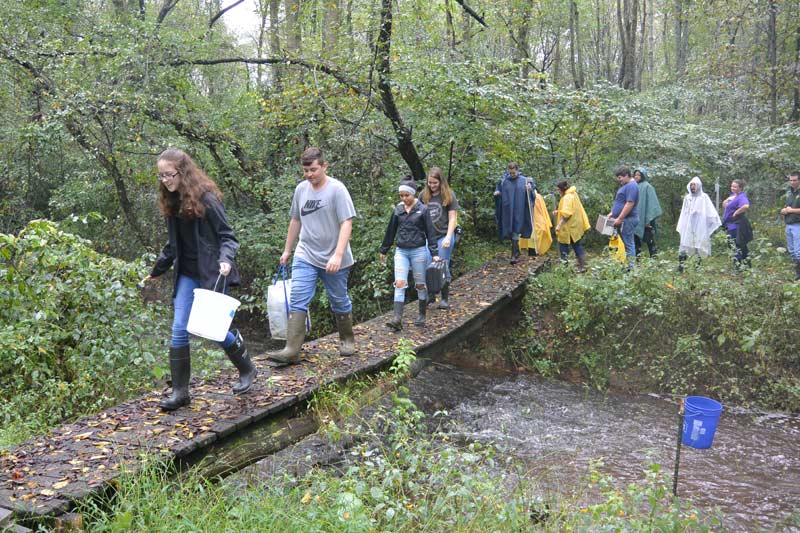
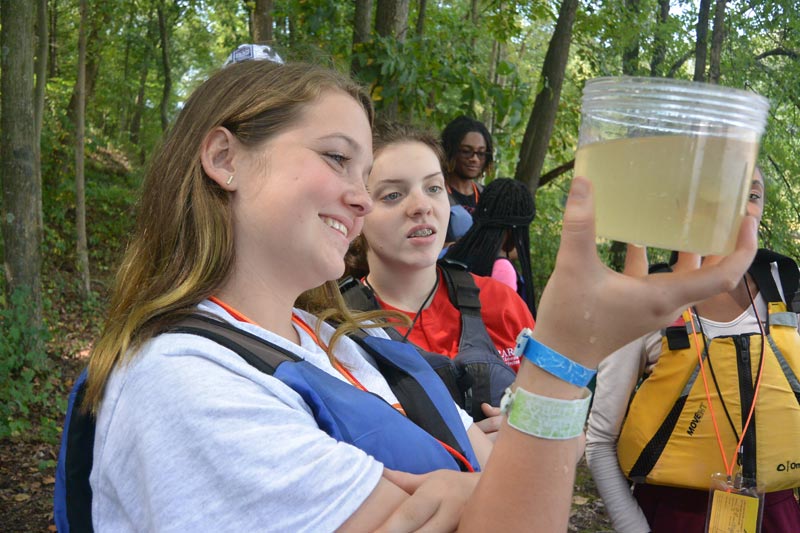
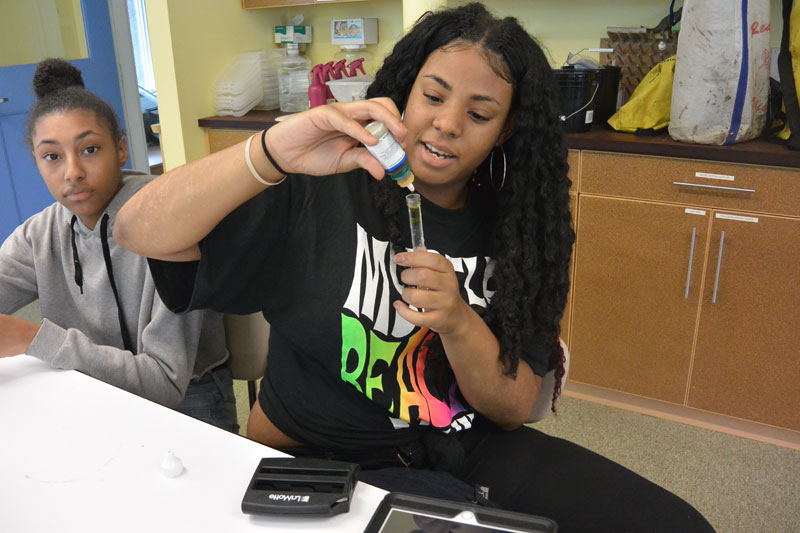
By day three, the skies had cleared, and the students and staff set off in canoes on the Octoraro Reservoir to experience the fun and beauty this freshwater resource had to offer. For some, it was their first time canoeing.
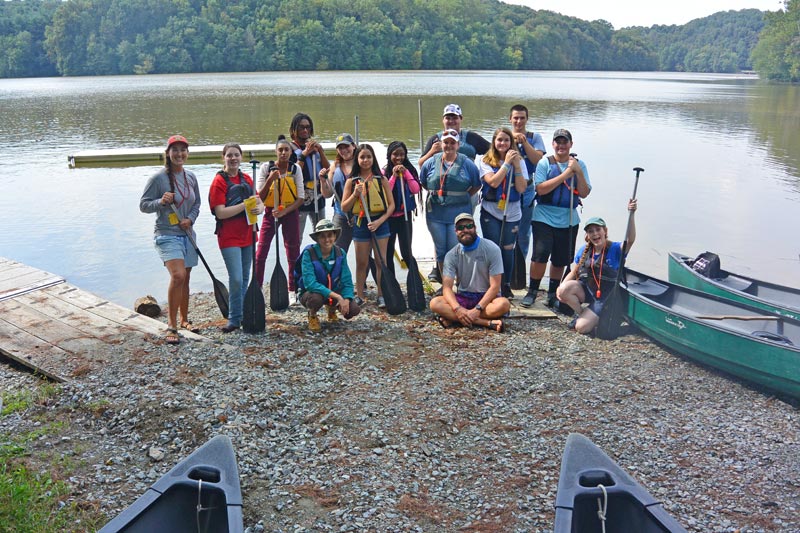
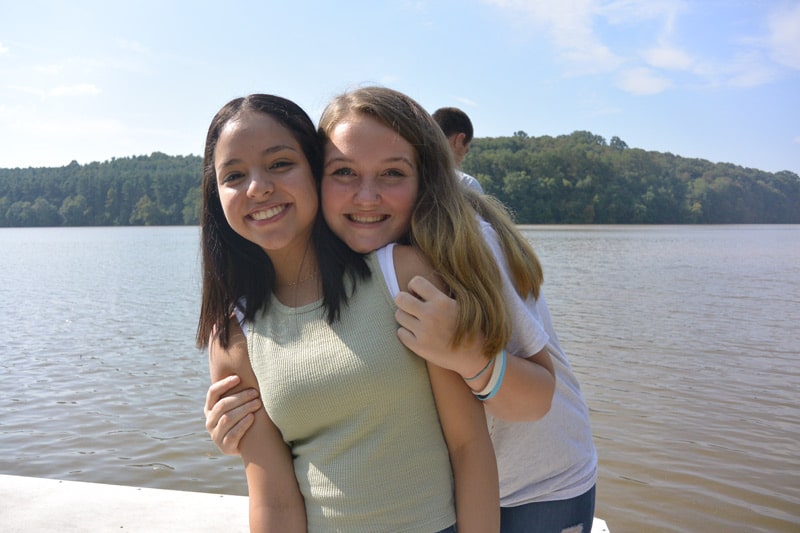
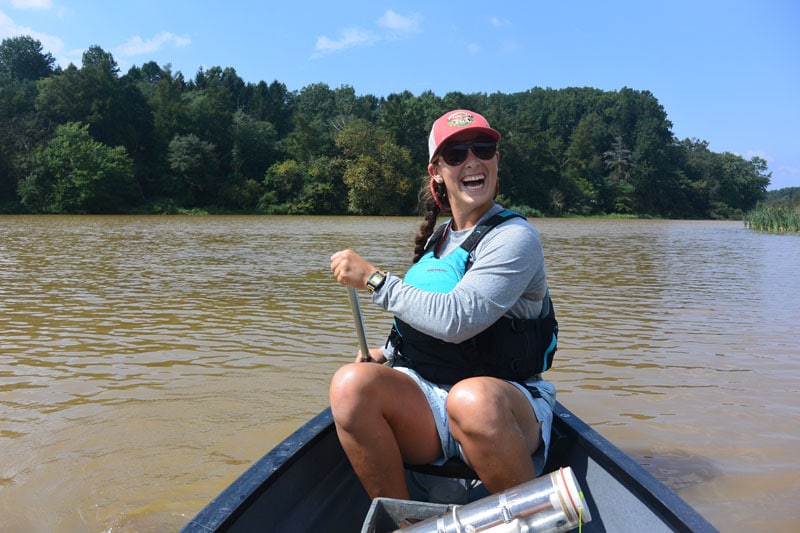
Learning While Having Fun
They also learned more about their place and role in the watershed. Activities included seine fishing and aquatic insect collection, wildlife observation in the marsh, and water quality monitoring. “Seeing the wildlife and litter while learning how the marshes filter pollution and their importance, really stuck with me and I’m hoping with the students too,” said Ms. Martin.
“We wanted the students to have fun learning about the local history, environment, and to ultimately discover how we as humans impact water quality through our choices,” said Muenz.
One student said, “This is so much fun, and we did a lot of laughing and saw a lot of cool animals.”
The program was made possible by a cooperative agreement between the U.S. Department of the Interior, the National Park Service, Captain John Smith Chesapeake National Historic Trail, and Sultana Education Foundation. The partnership will continue over the next year so that more students and teachers from Octorara High School and the surrounding area can enjoy similar experiences.



